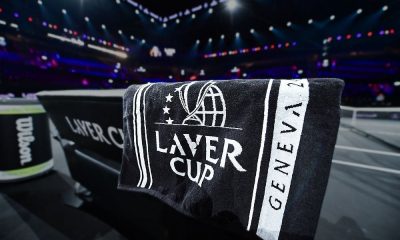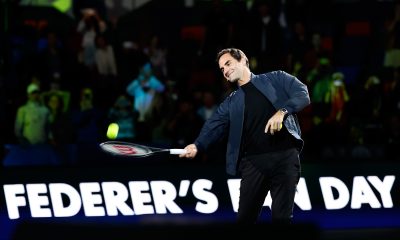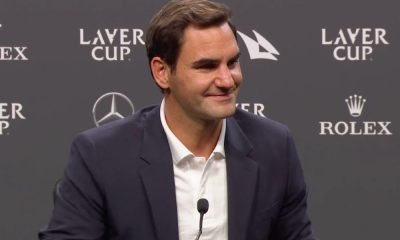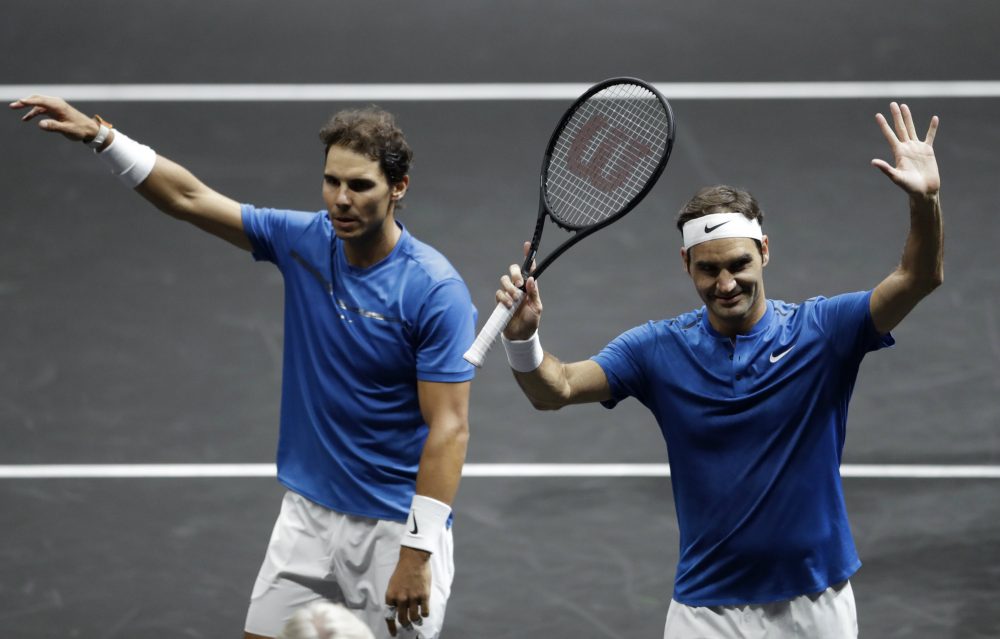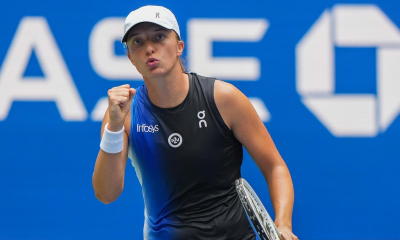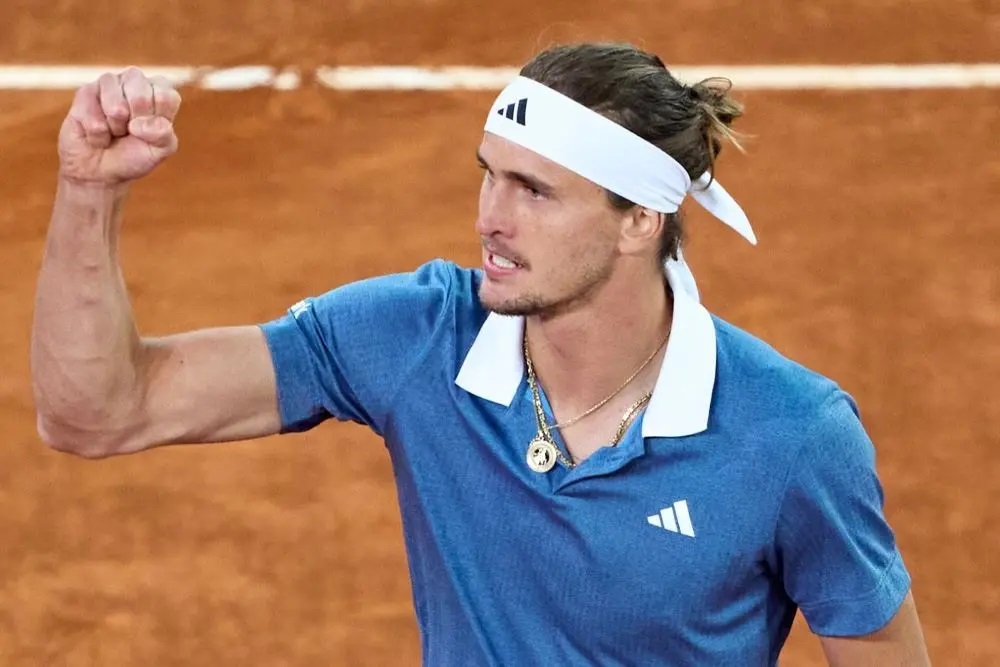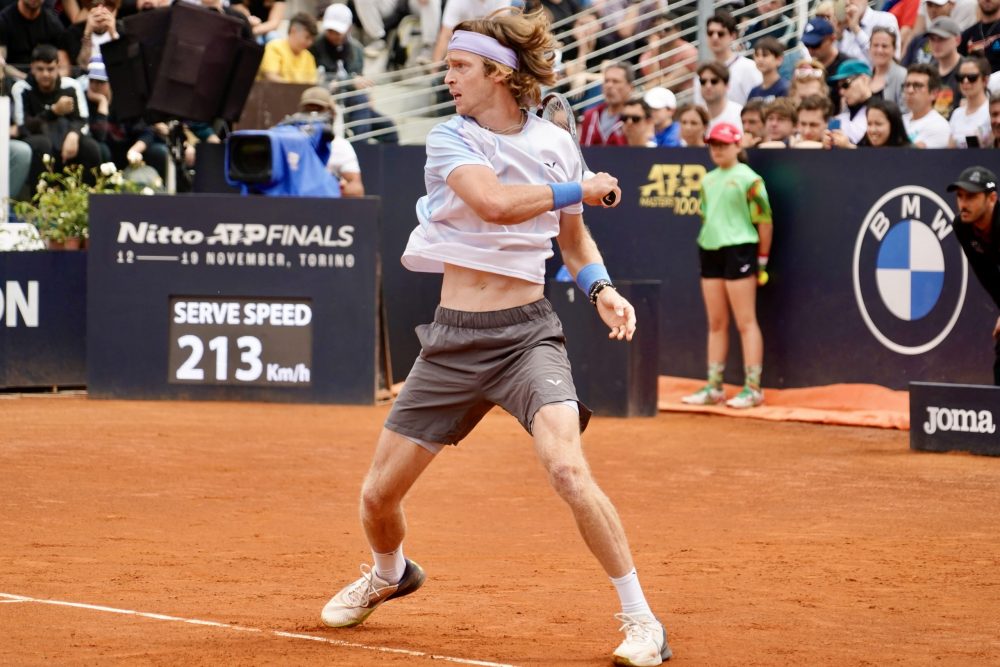TENNIS US OPEN – 29th of August 2014. R. Federer d. S. Groth 6-4, 6-4, 6-4. An interview with Roger Federer
Q. Reading a book called Facing Federer. They all say the same thing. They always beat themselves. They deny the Federer mystique. Given your history, it’s an intangible asset, if that an advantage before even stepping on the court?
ROGER FEDERER: Whew, I don’t know if it’s an advantage necessarily, because the opponent has nothing to lose. He can go out there and just go for it really because he’s not expected to win. I think it really depends on the personality of my opponent.
Q. Third set, looked like there was going to be a fourth set, and there you go.
ROGER FEDERER: Yeah, but there he should have like forgotten who he’s playing and all that stuff. By then he’s in the match. I had my opportunities early on in the third as well, so I was just hanging on. Maybe the pressure got to him a little bit just because of my opportunities I created. I understand where you’re coming from, but I don’t necessarily agree that it’s always an advantage being the favorite or former world No. 1 or Grand Slam champion, because I really do believe a lot of guys come out swinging against us, and they usually play above what they usually can.
Q. Do you have fun in this kind of match, two shots? Is it the type of tennis you like playing?
ROGER FEDERER: Well, I mean, what I like about these kind of matchups is there’s always going to be something unusual that’s going to happen, unusual shot-making. You have to react rather than just always play percentage tennis. You just hope to get the other odd ball back, and then all of a sudden it drops short; you’ve got to run up to it. Whenever somebody is at the net or you’re at the net, there’s always something of the unknown that’s going to happen a little bit more. Whereas at the baseline you’re so far away from your opponent that you see it happening. You have time to react to it. That can become sometimes a bit boring, I must say, as well. Like the big serving can be boring, as well. I like the mix of playing these kind of opponents and then totally different in the next match. But got to appreciate, you know, those kind of matchups, because we don’t have them very often anymore, unfortunately.
Q. You seem to be playing for the joy of it, with a lot of passion, but you also have these incredible records. For you, which has the most meaning?
ROGER FEDERER: Oh, I don’t know. Maybe I can tell you once it’s all said and done really, because right now — I mean, everything was big in the moment when I it. In that moment when I did break a record or when I tied it, that was what was magical about it, not really like having it. I mean, I can walk around screaming, I have 17 Grand Slams, I have the record here or there. It was the moment when I passed something. When you can play for history and you do it, that’s what is so really cool, is that you can then be compared to other greats or you’ve passed another great. Even though it doesn’t mean you’re better than him. But it’s just like that moment you’ve gone into the unknown where nobody else has ever been before. So I can really tell you when it’s all said and done, because my career went so much better than I thought it would anyway. I said it a million times, but it’s so true. Having won Wimbledon and become world No. 1, that’s for me the pinnacle when it all happened. World No. 1 makes the entire year consistency, being there, winning tournaments, day in, day out on the ATP Tour, the grind. That, for me, stands out besides winning Wimbledon, because that’s where my heroes won and where I wanted to win as a player.
Q. I have a question about the string. A lot of people say this kind of string changes the game a lot. I think now you’re playing with a combination. Did you ever play with 100% gut?
ROGER FEDERER: I did. Coming up on tour I played with all gut until 2002, and then I switched from the 85 to the 90 square inch racquet in 2002 before Rome. Then I think I won Hamburg with it, with the half and half. Ever since I play with the same combination. I’ve never switched Luxilon or gut in the main or the crosses. I’ve always kept it the same way. I do believe it’s revolutionized the game to some degree. You can play with more topspin. With the same swing you could not find angles that we find in today’s game. I’ve had to adjust over the years to this new play. It’s had a big impact on the game, no doubt.
Q. How do you adjust so quickly to those big serves? You returned at 147. Did you have your eyes opened or closed?
ROGER FEDERER: Got to check the replay. I’m not sure. It was maybe one of those moments (laughter). But the 142, honestly I hit it and I turned around. I didn’t know if it went into the stands or the bottom of the net or on the other side. I just felt like I hit it clean. You have a feel that maybe it could have gone in and went for a winner. The 147 one I felt like I was there and felt like I had more control on it. The difference between 142 and 147, there’s none really in the racquet. I think once you pass the 135 range everything is just really fast. It’s true, though (smiling). There you got to maybe either maybe pick a side or maybe have read the serve a little bit, because you do see, I feel, with the big, big serving guys, when they go for the really big serve, I feel like you just have that feeling that they’re really going to try to crank it and their body tightens up, and that gives it away sometimes that they’re going to go down the T on the deuce side, which is normal. Can’t be the same motion.
Q. Do you turn around and look at the speed gun? Did you see that was 147?
ROGER FEDERER: Yeah, I did. I’m aware of every serve, how hard it is after the point when he goes big, because I think it’s interesting and I want to see. Sometimes I feel it, as well. I’m like, That felt like 138, and it might be just a couple off. It’s the same with my own serve. I can judge it probably to a few miles an hour close.
Q. There is a new president of the ATP players council. What do you expect him to do?
ROGER FEDERER: Eric is a great guy. He was a wonderful vice president. Very nice to talk to, to deal with. Never had a problem together. President never had to tell the vice president to behave. No, joking. I’m very happy he’s the president. He’s been on the council for some time now. He showed some interest in being the president. It was nice to see that actually a few guys wanted to become the president, which I was happy to see, because in the past sometimes it’s not what you really wanted to be. You just wanted to be on the council. They want to be on the council and they want to be president and vice president. They feel it’s something that — you know, you learn from the council. You can lead the council. You can be there for the players. It’s a nice feeling being able to serve the ATP, in my opinion. For me it was the same for so many years. I am convinced that Butorac and Gilles Simon, the vice president, and everybody on the council, including Stan and so forth, are going to do a wonderful job for the next few years.
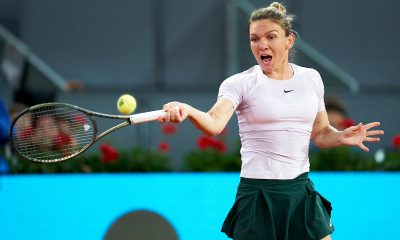
 Hot Topics3 days ago
Hot Topics3 days ago
 Hot Topics2 days ago
Hot Topics2 days ago
 Latest news2 days ago
Latest news2 days ago
 Hot Topics2 days ago
Hot Topics2 days ago
 Hot Topics16 hours ago
Hot Topics16 hours ago
 Focus2 days ago
Focus2 days ago
 Focus2 days ago
Focus2 days ago
 Latest news2 days ago
Latest news2 days ago

